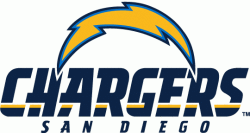Top Class Actions’s website and social media posts use affiliate links. If you make a purchase using such links, we may receive a commission, but it will not result in any additional charges to you. Please review our Affiliate Link Disclosure for more information.

Lead plaintiff Paul Story claims that he started receiving unsolicited phone calls to his cellphone sometime during October 2013. The calling number was allegedly associated with the marketing websites operated by the Chargers Football Company LLC. At no point in time did Story give any signed authorization to any valid Chargers representative that would have given the company permission to contact him for any marketing or advertising purposes, an alleged violation of TCPA law.
However, Story claims that he received multiple follow-up calls after ignoring the first one, and had received the calls in a massive wave that is typically associated with an automatic dialing system. TCPA experts state that automatic dialing systems use a list of phone numbers that the company keeps in hopes of sending future marketing messages, typically generating a large number of calls to the same number multiple times. Due to the inconvenience these systems impose on the recipients, these automatic dialing systems and artificial pre-recorded voices are banned by the TCPA, and use of these systems has led to a number of TCPA lawsuits and TCPA class action lawsuits.
According to the Chargers TCPA class action lawsuit, there is further evidence of an automated dialing system based on the number of similar calls placed to different recipients. Each of these alleged unsolicited calls were made for advertising and telemarketing purposes. While there is no set number of members for this proposed class, Story’s TCPA class action lawsuit claims that thousands of these unsolicited calls were placed to more than 40 individuals.
While it is still unknown whether or not this Chargers TCPA class action lawsuit will be approved by a federal judge, Story’s lawyers are fairly confident in this case based on their past experience with other TCPA lawsuits. If the San Diego Chargers are found to be guilty of willfully violating the TCPA, they may be obligated to pay $1,500 per unwanted text or phone call.
This TCPA class action lawsuit is till in early stages of litigation, meaning a TCPA class action settlement can be offered, and negotiations can still be made.
The Chargers TCPA Class Action Lawsuit is Paul Story v. Chargers Football Company LLC, Case No. BC566896, in the Superior Court of California, County of Los Angeles.
Overview of TCPA Allegations
The Telephone Consumer Protection Act (TCPA) was established in 1991 in order to protect American consumers from the growing problem of persistent telemarketing. Later in 1992, do-not-call lists were established for consumers to sign up their home and cell phone numbers, in order to prevent solicitation calls from reaching them in general.
In general, the rules of the TCPA for businesses to follow include, but are not limited to:
- The call must be placed to a residence between the hours of 8 a.m. and 9 p.m. in local time.
- The call recipient must not be on the company’s “do-not-call” list, the numbers on list must be honored up to five years.
- Companies must provide their name, the name of the company representative, and a return number or address where a representative can be reached.
- Calls cannot be made with an automated dialing system, or with an artificial voice recording.
- A company may not place any automated calls to emergency lines, hospital emergency number, a physician’s office, a cellphone, or make any call that the recipient will be charged for.
- A company or entity may not make unsolicited faxes to recipients.
As mentioned before, this is not a complete list of regulations and any potential TCPA plaintiffs should consult with a lawyer about their specific TCPA claims. If the company is found to be in willful violation of the TCPA, the recipient can sue for up to $1,500 for each unwanted message or to recover any monetary loss. For every unintentional TCPA violation, the company may have to pay up to $500 per call or text message.
Join a Free TCPA Class Action Lawsuit Investigation
If you were contacted on your cell phone by a company via an unsolicited text message (text spam) or prerecorded voice message (robocall), you may be eligible for compensation under the Telephone Consumer Protection Act.
ATTORNEY ADVERTISING
Top Class Actions is a Proud Member of the American Bar Association
LEGAL INFORMATION IS NOT LEGAL ADVICE
Top Class Actions Legal Statement
©2008 – 2024 Top Class Actions® LLC
Various Trademarks held by their respective owners
This website is not intended for viewing or usage by European Union citizens.














